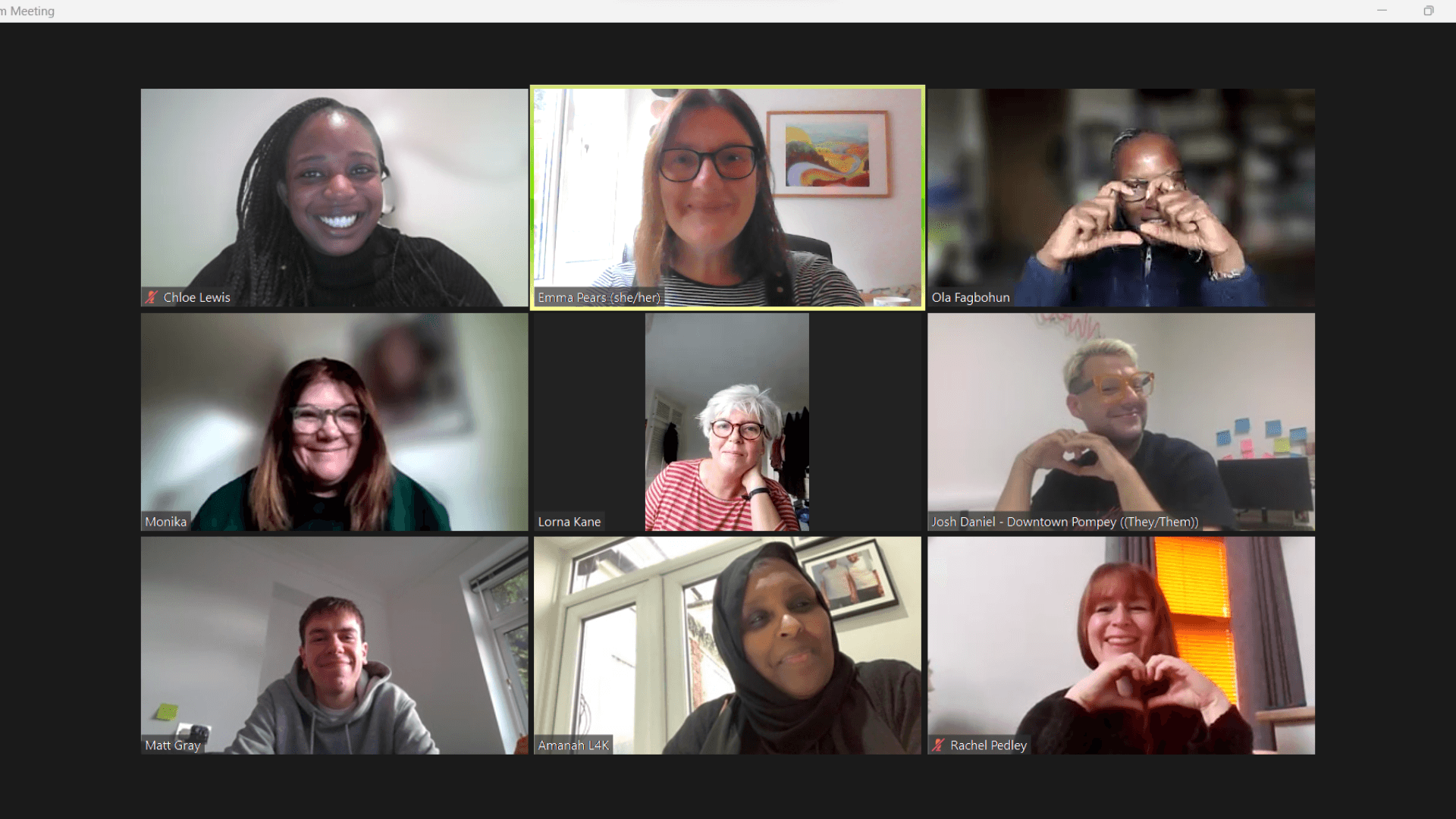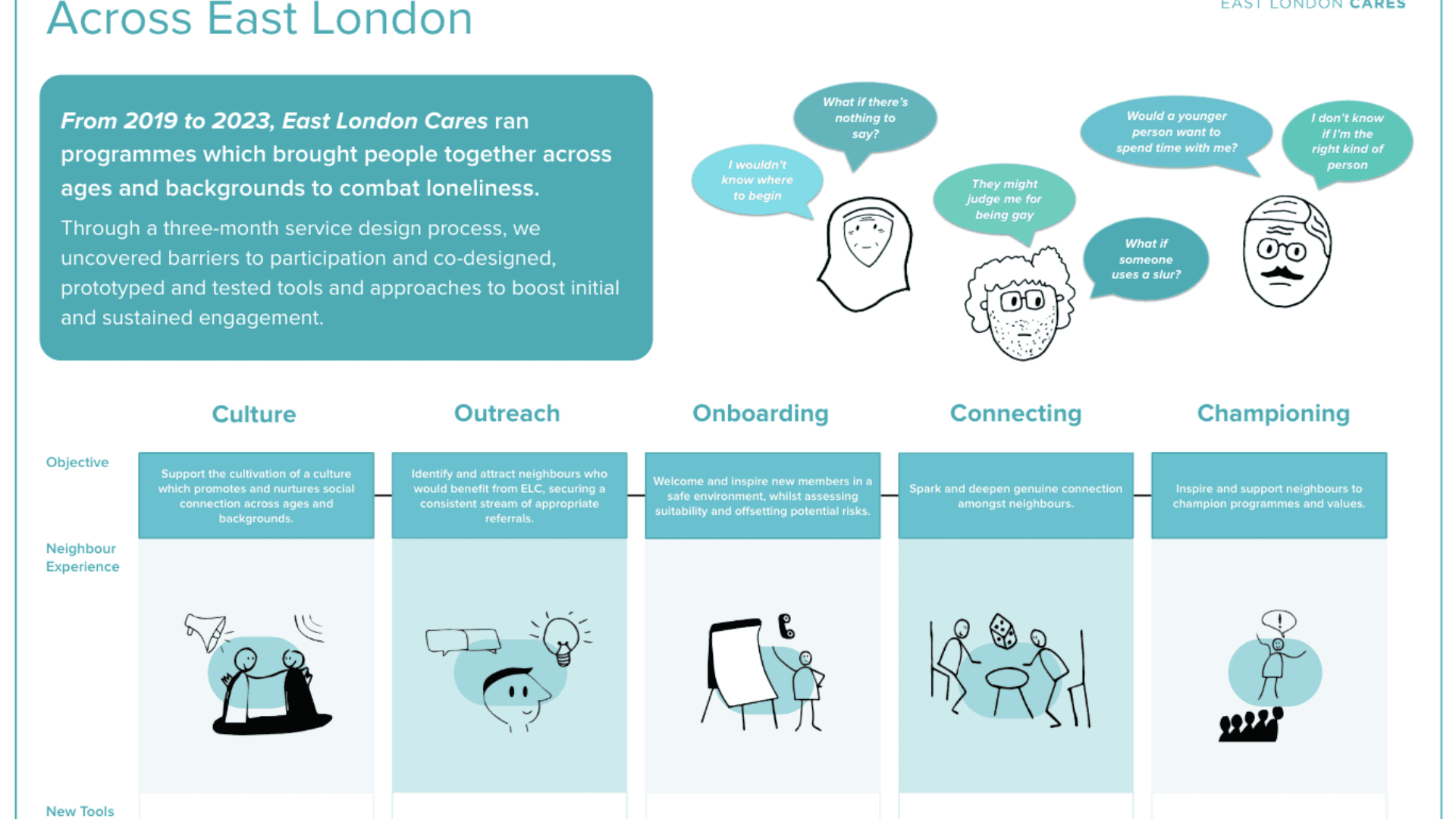
The Cares Family publishes Building Connection: A Manifesto
Posted by The Cares Family on 11th July 2023
Please note: this post is 20 months old and The Cares Family is no longer operational. This post is shared for information only
Today we’re delighted to share our new report that sets out five key policy recommendations to strengthen social connection and community power in the UK.
Building Connection: A Manifesto draws together the policy thinking that we have undertaken in recent years. We hope that it will help policymakers from across the political spectrum with the big and bold ideas needed to tackle the UK’s crisis of social disconnection.
The UK’s crisis of social disconnection
The report sets out the scale of the current crisis and why improved social connection is so important for health, wellbeing, democracy, the economy and much more.
There is a growing body of evidence that highlights the impact that the crisis of social disconnection is having in the UK:
- In 2022, 49.63% of adults (25.99 million people) in the UK reported feeling lonely.
- Numerous medical studies have highlighted how improved social connection can decrease the risk of developing and worsening heart disease, anxiety, dementia and diabetes.
- Only 45% of younger people feel as though they belong within their neighbourhood.
- The the cost of loneliness to UK employers has been estimated to be £2.5 billion every year.
Our five policy recommendations for the next government
We’re clear that this crisis requires an urgent response. Taken together, the recommendations will help put social connection where it needs to be on the legislative agenda. They will also help support the UK’s rich tapestry of community-based organisations with the resources and power they need to continue building connection in a variety of innovative ways.
Our policy recommendations are:
- Bring forward a refreshed loneliness and social connection strategy and invest £90m over three years in community organisations working to build social connection.
- Appoint a dedicated Minister for Loneliness and Social Connection within the Department for Levelling Up, Housing and Communities.
- Create a new Centre for Social Connection to fuel the development of connecting institutions.
- Institute a 0.5% ‘loneliness levy’ on the profits of social media companies, generating funding for these policy measures.
- Introduce a Community Power Act to drive power downwards and outwards to local people and encourage the development of local, relational, and preventative services and policy approaches.
“The Cares Family’s manifesto provides a bold vision with imaginative ideas for achieving a more united country, including giving communities real power to decide on the priorities they need to make best use of the resources available in terms of local spaces, services and spending.
“With levels of loneliness continuing to rise and with communities in need of urgent support to help keep them strong and united, we cannot afford not to act.”
Kim Leadbeater, Labour MP for Batley and Spen
“The Cares Family do amazing work to bring together younger and older people, and their new manifesto should make us all stop and think about how we can create a truly united country.”
Tracey Crouch, Conservative MP for Chatham and Aylesford and Former Minister for Loneliness
“While great steps forward have been made since the publication of the first loneliness strategy in 2018, it’s vital the next government builds on this and makes tackling loneliness a key priority.
The Cares Family play an important role in building connections across generations, and it's great to see them setting out ideas for how governments can support this work.”Robin Hewings, Director of the Campaign to End Loneliness
The Building Connection Series
Building Connection: A Manifesto is the third and final publication in the Building Connection series. The first, Building Connection: The Promise of a Strategy for Community Spaces and Relationships, explored the role government could play in supporting the development of social infrastructure by working with successful civic innovators.
Last month, we published Building Connection: Exploring What Works outlines the ten techniques that have helped us bring together 26,000 older and younger people in London, Liverpool and Manchester over the past 12 years.
We hope that these three papers set out a number of compelling policy ideas and approaches through which policymakers might support people of all backgrounds and generations to feel both a greater sense of connection and a part of the rapidly changing communities around them.


